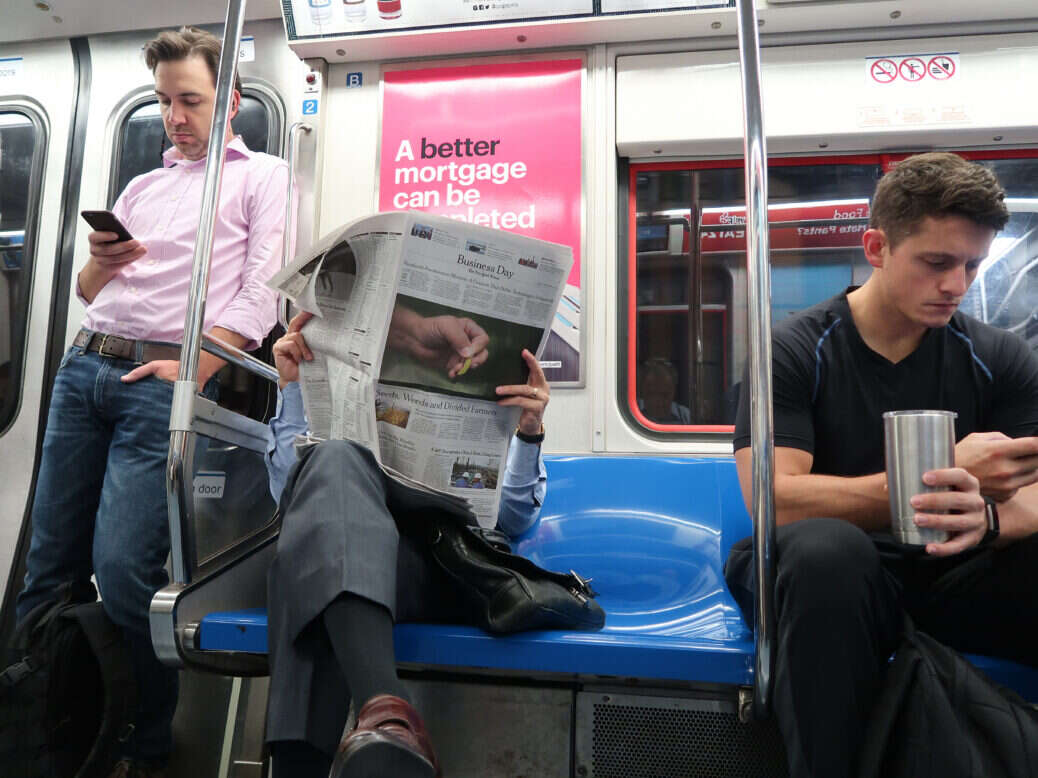
Americans balk at seeing political debates online, moving them away from their social media feeds – but toward voting and following the news, according to a new survey.
The research, carried out by Gallup and the Knight Foundation, also found that Americans are undecided over whether it is the job of governments, big tech or individuals themselves to combat online harms.
And, contrary to popular conceptions of “generation snowflake”, data indicated that young Americans are less likely to be concerned about the tone of online discourse than their elders.
The results, based on surveys of 10,226 American adults aged 18 and over, indicated that many Americans are discouraged from digital political participation.
Some “35% of Americans report that seeing debates on social media makes them less likely to post about politics on their own social media profiles, and 32% say it makes them less likely to use social media in general”, the Knight/Gallup report said.
But it added: “Americans who use social media as a platform for political exchange – i.e. a digital public square – are motivated to engage in positive traditional political and civic activities outside that square while paradoxically being demotivated from further engaging within that digital platform.”
In particular, the research found that 39% of Americans said they were more likely to follow the news as a result of debates they see in their social media feeds. Some 48% said they were more likely to vote after seeing those scuffles.
The effect is more pronounced among Democrats: 56% of blue respondents said they were more likely to vote as a result of political debates on social media, versus only 44% of Republicans and 40% of independents.
Similarly, 50% of Democrats said they were more likely to follow the news because of digital debates, against 28% of Republicans and 32% of independents.
The only group encouraged to use social media more by political debates were black Americans, who were also more spurred by this type of discourse to engage with the news and vote than their white peers.
Young Americans (aged between 18 and 34) were the most likely group to be dissuaded from social media participation by the online skirmishes, with 23% saying it pushed them away from the platforms altogether.
Conversely, however, 45% of young Americans said they were more likely to vote as a result of those debates, 32% that they were more likely to donate to social causes and 27% that they were more likely to go to a protest.
[Read more: Two thirds of British people are worried about the spread of fake news]
And they were also the age bracket most likely to be nonplussed by "hurtful content" online, with those aged 55 and over the most concerned about it. (Black Americans, and black women in particular, were the respondents most concerned about hurtful content overall.)
With regard to whose job it was to deal with online harms such as abuse, misinformation and hate speech, Americans were split: some 38% leaned toward government intervention while 36% leaned toward big tech self-regulating.
There was some agreement over false or misleading content specifically, however, with 57% of respondents saying mitigating such content should be the job of the platforms.
And a majority (54%) somewhat or strongly believed people should have to provide proof of their identity when creating social media accounts, with only 22% believing the opposite.
Rather than neat partisan divisions, the analysis identified six groups of Americans broadly aligned in their approach to the web and its challenges.
[Read more: Democrats less attentive to news than Republicans for first time in years]
Two groups - dubbed “The Reformers” (30% of respondents) and “The Individualists” (19%) - corresponded broadly to stereotypical profiles of Democrats and Republicans respectively.
Beyond these however, researchers noted more complex coalitions, for example “Concerned Spectators” (19%) who had worries about discourse online but were unenthusiastic about government intervention, or the “Unplugged and Ambivalent” (4%) who argued both that social media doesn’t have an impact on politics but also that big tech should take positions on social issues.
The youngest segment - “Unfazed Digital Natives” (19%) - were heavy internet users, leaning Democrat but less concerned about online harms and opposed to both government intervention and corporate moderation. They were the least likely group to say a free market was important to a functioning democracy, and one of the few that leaned toward protecting internet anonymity.
This group reported using the internet more for entertainment than for staying up on the news. In contrast to refrains about youths getting their news from Instagram, only 10% of the Digital Natives reported getting their news from social media - though this was the highest figure for that source among any of the six segments. The most popular sources of news for those Digital Natives staying up on current affairs, instead, were newspapers and their associated websites (32%).
Picture: Gary Hershorn/Getty Images
Email pged@pressgazette.co.uk to point out mistakes, provide story tips or send in a letter for publication on our "Letters Page" blog
